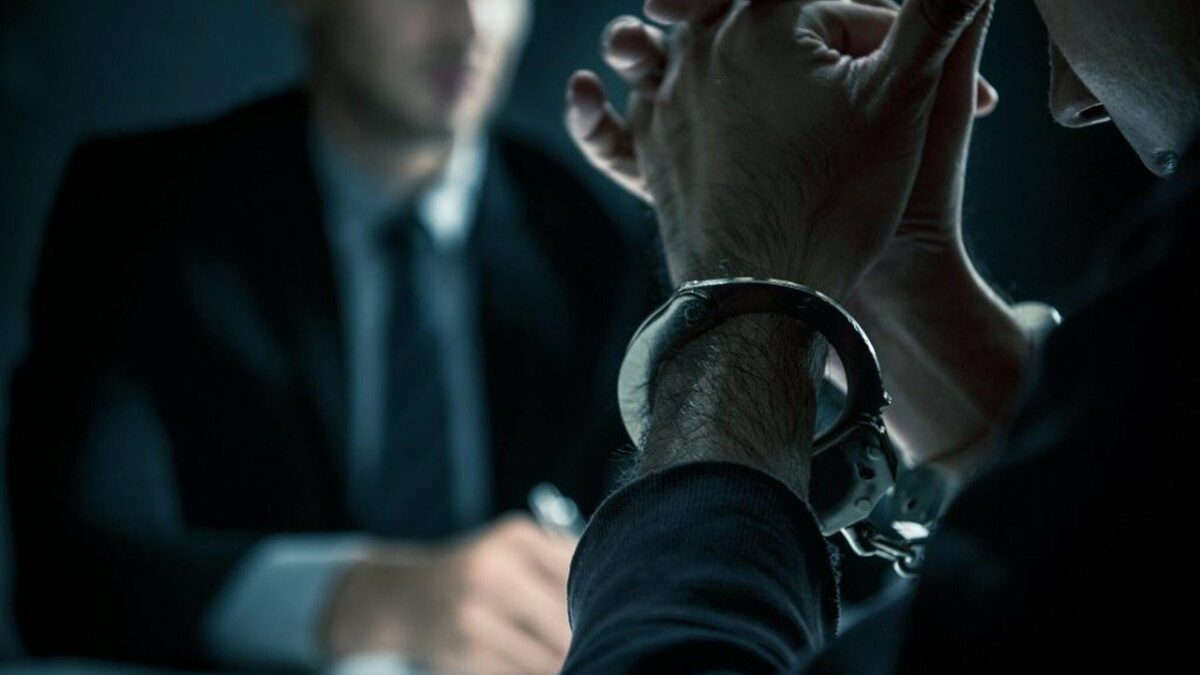
The Future Lawyer Weekly Briefing – W/C 23rd September 2024
September 22, 2024
The Indispensable Business Attorney: Your Legal Partner in Success
September 22, 2024Criminal defense is the legal practice of representing individuals or entities accused of committing crimes. It encompasses a broad spectrum of activities, from conducting investigations and gathering evidence to negotiating plea deals and litigating cases in court. The primary goal of criminal defense is to ensure that the accused receives a fair trial, their rights are protected, and justice is served.
The Pivotal Role of Criminal Defense Lawyers
Successfully traversing chaotic criminal litigation reliably to emerge with rights preserved requires a specialized criminal defense lawyer by one’s side. As seasoned navigators of criminal law’s intricacies, they serve as indispensable guides through the chaotic realm of balancing strategy and empathy.
Advising Clients
Defense lawyers simplify legalese, helping clients understand charges filed, realistically assess options and determine the next steps given unique circumstances. Their job isn’t deciding innocence or guilt per se but empowering clients to make wise choices.
Building Strong Cases
They proactively investigate events, construct timelines, gather relevant documents, and depose key witnesses aiming to validate claims weakening the opposition’s arguments early.
Negotiating Resolutions
Defense counsels leverage case merits by negotiating with prosecutors advocating reduced charges, alternate penalties, or combination settlements, optimizing outcomes.
Vigorously Defending in Court
When settlement fails and trials commence, they confront accusations directly – questioning the credibility of evidence and witnesses while affirming the defendants’ innocence absolutely. This upholds constitutional rights.
Protecting the Vulnerable
By amplifying the voices of even the most disenfranchised and powerless against the system’s full might, criminal defense equalizes inequities allowing the falsely accused to rightfully restore reputations and freedom.
Choosing a professional criminal defense attorney in Sacramento could define life-changing results if ever accused. Opt for responsive communicators demonstrating case-winning savvy.
Types of Criminal Cases
Crimes span endless variations from non-violent white-collar hidden capers to violent serial homicides splashed loudly across headlines. But categories help align appropriate defenders to relevant charges:
Felonies
Most severe offenses like murder or rape carry over one year of prison time. Violence, significant injury, or major losses define these.
Misdemeanors
Lower-level crimes like petty theft or disorderly conduct, typically incurring fines or less than one year of jail time, have less violent outcomes.
DUI/DWI Charges
Driving under intoxication from alcohol or drugs risks licenses, fines, jail time, and civil damages through negligence.
Drug Possession or Distribution
Depending on substances and quantities, controlled substance charges trigger wide-ranging penalties. Distribution faces more severe sentencing.
White Collar Financial/Cyber Crimes
Non-violent scheming for illicit personal or commercial gain through mechanisms like fraud, embezzlement, or hacking lacks overtly criminal elements even while unlawful.
Federal Charges
Violations of federal statutes like tax evasion, corruption, or civil rights infringements fall under federal jurisdiction with harsher judgments.
Understanding the gravity of different criminal classifications assists in aligning defender skill sets to case complexities.
Critical Stages of Criminal Cases
Like intricate chess games, criminal matters navigate many phases, each presenting prosecution and defense opportunities to advance their position through motions, discovery requests, plea deals, and trial arguments alike.
Arrest
Police apprehension and booking on allegations follow investigations concluding reasonable suspicion based on available evidence.
Arraignment
The accused’s first court appearance where charges face official reading and defendants enter a plea affirming or denying allegations.
Pretrial Motions
Early legal maneuvers attempt to admit/suppress evidence, dismiss unfounded charges, or even remove biased jurors.
Trial
Formal evidentiary hearings establish defendants’ guilt or innocence to judges or juries. Incriminating and exonerating proof faces extensive examination from both sides.
Sentencing
If convicted, judges determine the appropriate punishment severity per statutes and circumstances. Maximum and minimum bars confine options.
Appeals
Upon sentencing, higher courts may assess convictions/sentences for legal soundness if the defense identifies reversible lower court errors infringing rights.
The path holding freedom at stake holds many intricate phases demanding proactive navigation.
Criminal Defense Strategies
Capable lawyers employ an array of tactics rebutting charges, uncovering proof holes, questioning credibility, and aligning evidence to positives like mental fitness to strategically undermine prosecutorial attacks from every angle, maximizing acquittal or minimizing sentencing odds.
Attacking Incriminating Evidence
Every proof piece faces extensive scrutiny assessing collection methods, a chain of custody safeguards, examination procedures, data integrity, and analyst credentials questioning validity, helping exclude prejudicial exhibits legally.
Disputing Investigative Accounts
Eyewitness testimonies, law enforcement observations, and complainant statements also undergo scrutiny revealing perception gaps, investigator biases, or recollection inconsistencies, weakening arguments.
Presenting Alibis and Alternate Possibilities
Viable explanations inconsistent with accusations raise reasonable doubts. Airtight alibis definitively shift possibilities elsewhere. Hypothetical “what-ifs” expand plausible narratives.
Plea Bargaining
Leveraging case merits negotiating reduced charges, downgraded penalties, and bundled agreements maximizes outcome optimizations for defendants signing admissions avoiding trial uncertainty.
Asserting Affirmative Defenses
In some instances, actions otherwise deemed illegal may defensibly occur under extenuating circumstances like self-defense, provocation, and diminished mental capacity. These justify non-conviction when proven.
Meticulously orchestrating these elements humanizes clients dismantling superficial media narratives sensationalizing defendants absent nuance and context.
Securing Constitutional Rights
As crucial backstops preventing overzealous pursuit unjustly depriving rights against the disempowered, foundational civil liberties provide robust legal basis challenging oversteps at every phase.
Right Against Forced Self-Incrimination
The 5th Amendment ensures no coercion extracting unwilling confessions denying due process protections the government must uphold for the accused regardless of alleged violations.
Right to Counsel
The 6th Amendment guarantees legal help to all defendants despite the ability to independently afford assistance or a clear understanding of navigating complex proceedings unrepresented.
Right to Speedy and Public Trials
Defendants cannot suffer indefinite detentions without formal charges. Trials resolving allegations publicly before juries of peers keep proceedings equitable.
Right to Cross-Examine Accusers
Confronting prosecution witnesses through intense questioning tests the credibility of incriminating testimonies and exposes incomplete investigation oversights unraveling charges entirely when successful.
Freedom from Unreasonable Government Intrusion
Cornerstone 4th Amendment safeguards require exhaustive justification from investigators necessitating any search warrants or property seizures before execution limiting abuse of authority against individuals.
Fortifying often violated civil rights strengthens the integrity of verdicts delivered and punishments imposed, upholding justice for all equally under the law.
Consequences of Criminal Convictions
If zealous advocacy fails to prevent unjust outcomes despite best efforts, significant ripple effects stemming from having permanent marks on records must be managed too.
Incarceration & Associated Fallouts
For serious felonies, imprisonment punishing through liberty deprivation brings steep collateral costs as families grapple with income loss and dissolution of community ties.
Financial Penalties
All convictions extract harsh monetary penalties, including fines, victim restitution, legal fees, and civil damages from lawsuits compounding case impacts.
Career Barriers
Background checks revealing criminal records often constrain both public and private sector job prospects regardless of qualifications or talent.
Reputational Destruction
The social stigma around criminality diminishes societal trust and tarnishes personal/professional relationships in ways rarely reconciled fully.
Legal Rights Contraction
Certain convictions permanently rescind crucial rights around business licensing, foster parenting, voting, and firearm ownership tearing economic and political fabric.
Immigration Fallouts
Any non-citizen determinations necessitate detention pending deportation hearings, unifying families continentally apart.
Mitigating this landslide requires early action, steering legal outcomes positively before conviction cascades crash futures irreversibly.
Alternatives to Incarceration
In deserving situations, courts do allow non-prison resolution paths, balancing punishment against rehabilitation better serving all interests.
Community Supervision (Probation)
Allowing selective mobility adhering to court-ordered stipulations like counseling, public service, and restitution payments enables monitored community rehabilitation.
Home Confinement (House Arrest)
An intermediate option between imprisonment and outright release restricts mobility to residence yet allows self-improvement opportunities unavailable in facilities.
Addiction Support Programs
Supervised recovery treatments help individuals with underlying substance abuse/mental health challenges get back on positive trajectories addressing root behaviors and ending recidivism cycles.
Restorative Justice Initiatives
Victim-offender mediation centers provide structured dialogues facilitating accountability, restitution, and healing without continuing futile punishment-driven models.
Conclusion
Facing criminal charges can be a daunting experience, but understanding your rights and the legal landscape is crucial. By seeking the expertise of a skilled criminal defense attorney and building a solid defense strategy, you can protect your freedom and navigate the complexities of the criminal justice system.





